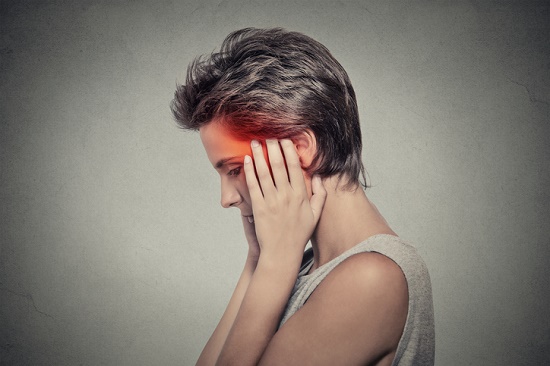Though it’s true that there is at this time no scientifically-established way to cure tinnitus, researchers are hard at work to identify one. In the meantime, a variety of tinnitus therapy options exist that can supply considerable relief.
Think about it in this way. When you have a headache, you take Tylenol regardless of the fact that it doesn’t “cure” your headache. Pain relievers merely make the pain fade into the background to ensure that it doesn’t interfere with your day. Similarly, tinnitus therapies can help reduce the intensity of symptoms so that your tinnitus has very little influence on your daily life.
Given that everyone reacts to tinnitus in a different way, there’s no one-size-fits-all treatment. You’ll need to work with your provider to find the option that is best suited for you.
Here are many of those options.
Tinnitus Treatment Methods
If you are suffering from tinnitus, you’ll want to examine the following treatment options with your hearing care or healthcare professional.
Treatment of the underlying condition
Whereas most instances of tinnitus are not curable—and are derived from hearing loss or other non-reversible damage—certain cases are brought on by an underlying physical ailment. You’ll want to rule these out prior to pursuing other treatment modalities.
Potential physical causes of tinnitus include jaw joint problems (temporomandibular joint, or TMJ dysfunction), excessive earwax or other blockages in the ear canal, head and neck injuries, and side effects to select medications.
General Health And Wellness
The degree of tinnitus symptoms can vary depending on overall health. Taking actions to enrich general health is, therefore, one thing tinnitus sufferers can get started on immediately to decrease the severity of symptoms.
Each patient is unique, and what works for someone else might not work for you. The purpose is to experiment with different activities to discover what is most effective.
Strategies that have revealed promise include instituting a healthy diet, getting plenty of physical exercise, meditating, and partaking in activities like bicycling, which can cover up the sounds of tinnitus.
Hearing Aids
Tinnitus is commonly associated with hearing loss and hearing damage. In response to diminished stimulation from outside sound, the brain undergoes maladaptive changes that result in the perception of tinnitus.
By increasing the magnitude of external sound, hearing aids can help mask the tinnitus, making the sounds of tinnitus less conspicuous. Hearing aids in addition provide increased sound stimulation to the brain, which is considered to be neurologically beneficial.
Sound Therapy
Sound therapy is essentially the delivery of sound in the form of white noise, pink noise, or nature sounds to reduce the perceived burden or severity of tinnitus.
Sound therapy functions by masking the tinnitus and additionally by teaching the brain to recategorize the sounds of tinnitus as insignificant. This twofold effect can decrease the short and long-term severity of tinnitus.
Sound therapy can be provided through special tabletop devices, but also through portable media devices and even through hearing aids. Medical-quality sound therapy incorporates individualized sounds that match the pitch of the individual’s tinnitus for the most effective outcomes.
Behavioral Therapies
Recall that tinnitus is the sense of sound in the brain when no external sound is present. The condition is, for that reason, highly subjective, and each person reacts differently.
In fact, whether or not the person perceives tinnitus as life-altering or as no-big-deal is largely due to psychological reactions and not to the volume or pitch of the tinnitus. That’s why cognitive/behavioral approaches to tinnitus therapy have been demonstrated to be exceptionally effective.
A number of therapies exist, including Mindfulness-Based-Stress-Reduction (MBSR) and Tinnitus-Retraining-Therapy (TRT), which merges cognitive-behavioral-therapy with sound therapy.
Drug Therapy
While there are no current FDA-approved medications for tinnitus, antianxiety and antidepressant medications are frequently utilized to treat the behavioral responses to tinnitus. These drugs do not appear to affect tinnitus itself, but may furnish much-needed relief if thought necessary by your physician.
Experimental Therapies
The search for a tinnitus cure is on-going. A number of experimental therapies are in development or testing and new methods become available each year. If your tinnitus is severe, and you’ve attained very little benefit from existing therapies, you might be a candidate for one of these innovative treatment options.
Visit the Experimental Therapies page at the American Tinnitus Association website for additional details.
Obtain Relief For Your Tinnitus
Tinnitus is currently being aggressively studied, with new discoveries and prospective treatment methods reported every year. Even now, you can find several encouraging treatments that, while not providing a cure, can provide considerable relief. You owe it to yourself to take a look at these options, stay positive and persistent in your tinnitus care, and work with your provider to adjust your treatment plan for the best results.

